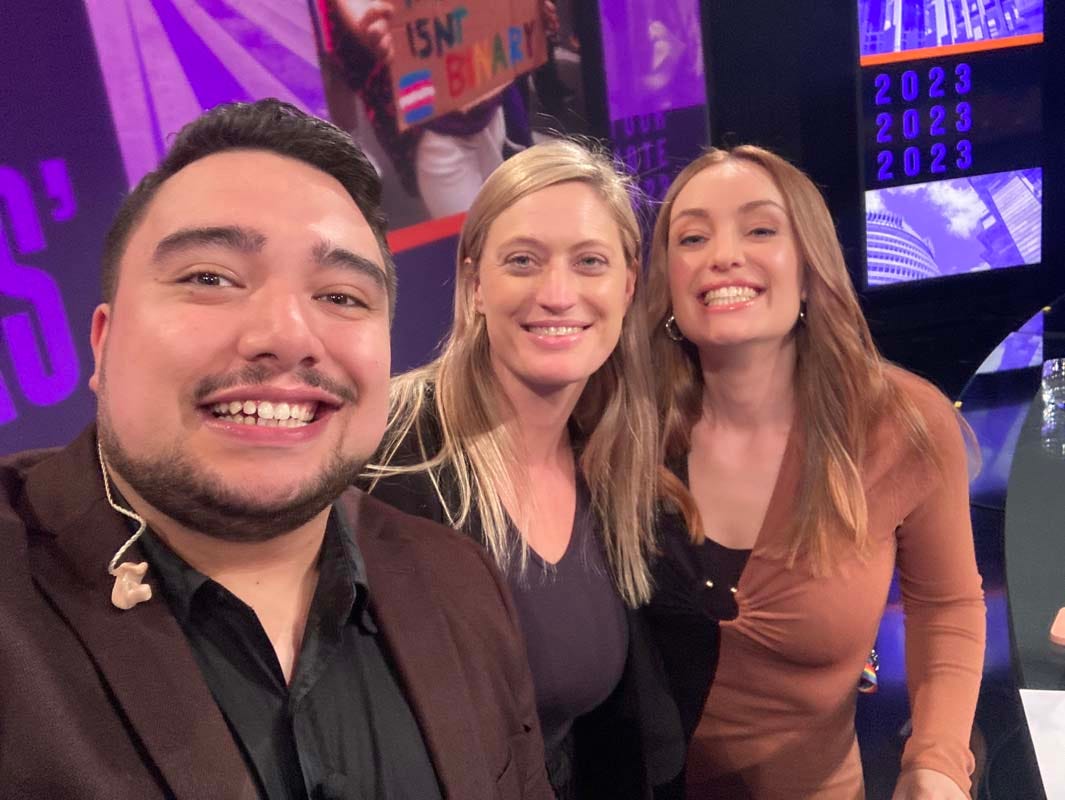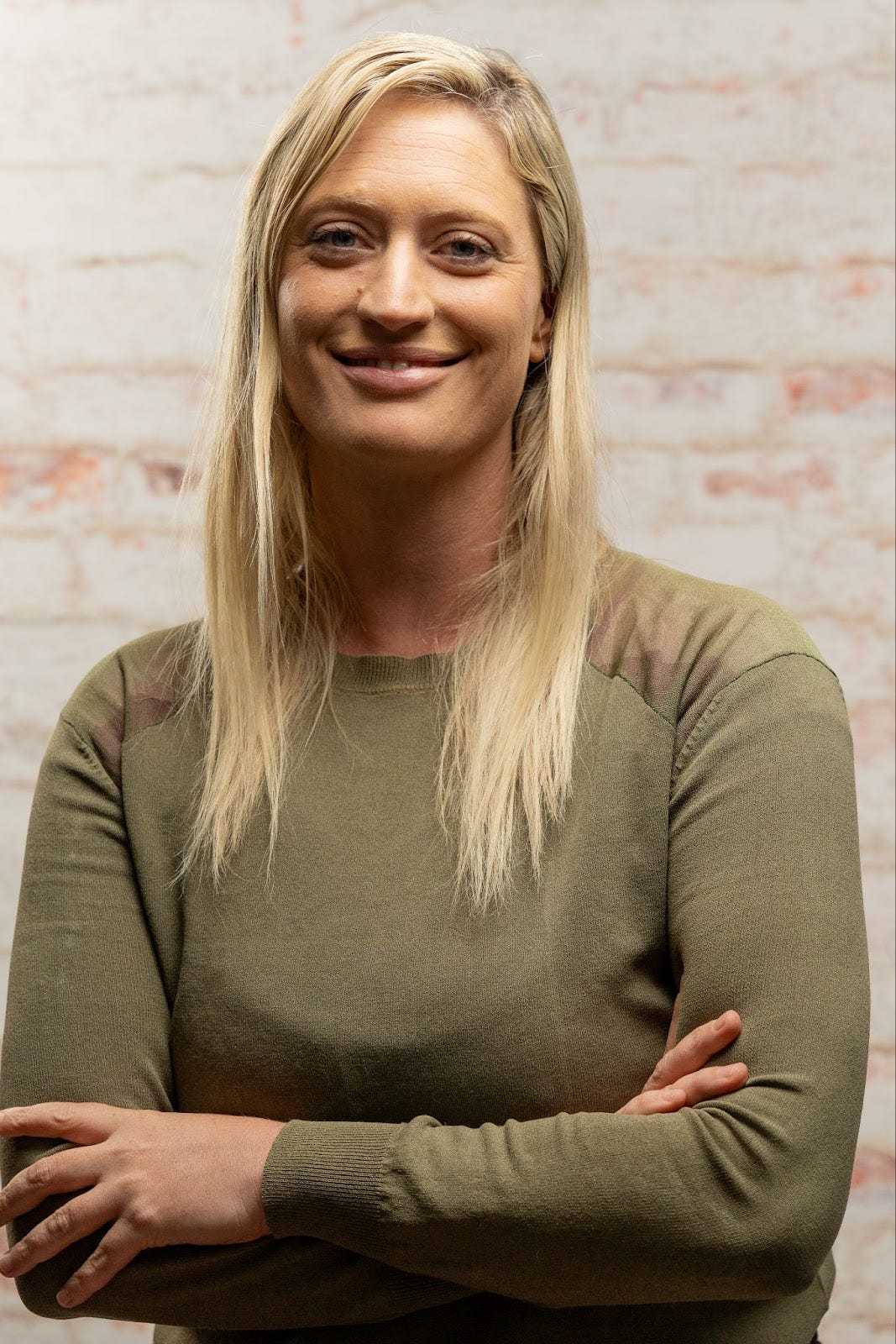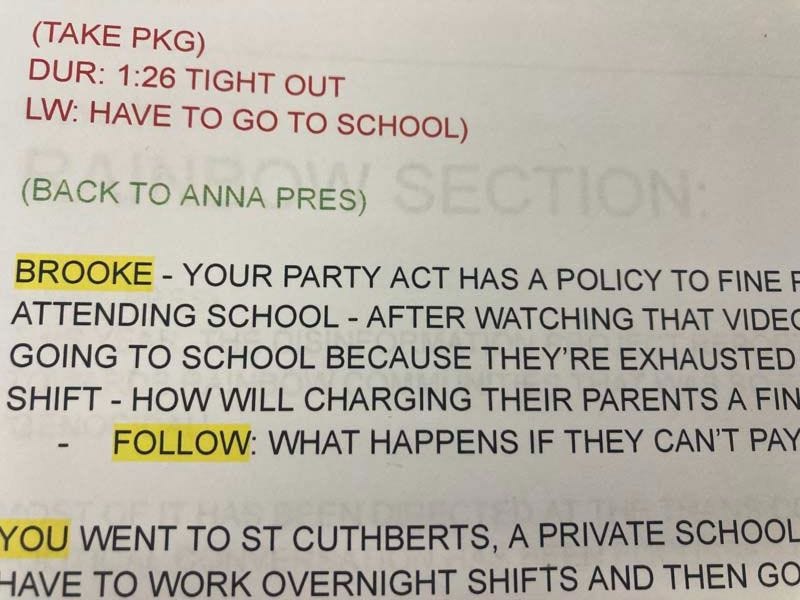🎥⚡️Fear and loathing (and lightning) in Studio 3
Architect of our Young Voters' Debate Caitlin McGee details her view from the control room.
It doesn’t matter how many people are sitting next to me as the final seconds count down before a show goes to air, it always feels lonely.
Whether I’m the one staring into the black hole of a camera or sitting in the darkness of a control room (in this case Studio Three in TVNZ where we put the Re: News Young Voters’ Debate together), every letter, line of script, autocue instruction, graphic and studio command bounce around my head.
A small fear lives inside me as I question if I’ve got everything right. And I hope there aren’t little grenades hiding in the show somewhere just waiting for live television to set them off.
Kia ora koutou – my name is Caitlin McGee and I produced the Re: News Young Voters’ debate.
Our host Anna Harcourt generously called me the “brains behind it all” in her IG post but I’d like to think of myself as a really supportive underwire bra.
During the Re: News Young Voters’ Debate, I had all sorts of last-minute worries running through my head: “Did I remember to tell Anna when she needs to walk off after that answer? Did we settle on whether we keep or scrap that section on Posie Parker?”
As one news director said to me about live TV when I was a young journalist working in the Middle East: “Sometimes you bite the bear, and sometimes the bear bites you!”
I’m pretty sure I didn’t get bitten while running the Young Voters’ Debate. But some of the six politicians who debated may not feel the same.
I often think there is a clunky misconception that young people need issues presented in a gimmicky or “light” way in order to engage with them seriously but what I’ve found as an erm, let’s say “youth adjacent” journalist working for Re: News, is that young people don’t need shit dumbed down.
So, I kind of made it my personal mission (and I might be just a little bit competitive) to make sure our rangatahi came away from the debate feeling not just more informed but that politicians had been challenged on the policies that could change their lives.
So far it has been described as “fast-paced” with “groans and giggles” and there’s been a decent focus on some of the tense exchanges between NZ First’s Lee Donoghue and the Greens’ Chlöe Swarbrick.
Plus, the unexpected jolt of Donoghue’s lightning strike story which has grabbed headlines and led to some lively discussions.
But for me, there was a better moment, and it had all started months before.
In June, our excellent 1News colleague Indira Stewart reported on high school students working between 25-50 hours a week to help support their families. All on top of having to show up for school, learn, complete homework, study and pass exams.
Indira told us at Re: News that she had extra footage that didn’t make it into her original story and generously offered it to us to rework and publish.
So we did and I challenge anyone to watch this video and not feel something.
As I lay in bed that night, I thought about those kids and what they might be doing at that moment.
Would Tevita be working an overnight shift with his dad? Did Mele have to come home from work at 11pm and start her homework? Did Soane have a warm bed in a warm house to sleep in? The injustice was overwhelming, and I felt an intense wave of loathing at society for letting these young people down.
So, when I was asked to produce the Re: News Young Voters’ debate, it became clear that the cost of living crisis (or “cost of surviving crisis” as Te Pāti Māori’s Hana- Rawhiti Maipi-Clarke put it) was a massive issue. And I knew the stories of those students belonged.
At first, I toyed with a question line about how our Pasifika young people are being set up to fail or how it is not an equal playing field out there.
But it was when I was researching NZ First’s gender ideology policy in education (a story for another newsletter) that I stumbled across ACT’s education policy to make the parents of students who do not go to school pay a fine.
Back in the Studio Three control room, the package (weird TV jargon for a TV report or piece of video content) ended, I scripted a question straight off the back to ACT’s Brooke Van Velden about the proposal to fine parents of truant school kids.
She had a sympathetic response but as she danced around the issue, (more journalist jargon for not answering the question), I leaned into the control room mic - which is connected to the presenter’s earpiece so they can hear me and the director Damon - and said: “So how does a fine help?”
Without missing a beat, our moderator Anna asked Brooke: “But they can’t afford it so how is fining their parents going to help?”
It was one of those perfectly satisfying live TV (or in this case livestream) moments.
I don’t remember much of what happened directly after that. But I do remember in the last minutes of being in that dark control room, when the show was coming to an end, our panel host Isaac Gunson asked Stuff Journalist Glenn McConnell what the most surprising moment in the debate was for him.
He said: “On punitive approaches, I think the Re: News report on high schoolers working overnight almost changed the mind of the people who came up with that policy. Brooke Van Velden was not willing to defend that after she saw that report and that could be a lasting effect of this debate.”
I really hope so.
Mauri ora!
Caitlin.





Great work
Chloe was Queen - her experience really shone through (as did the cutaways of her expressions). And I do want to say, I've never heard Hana speak before and I thought she was impressive.